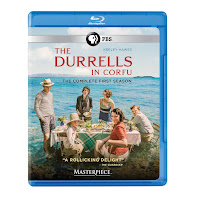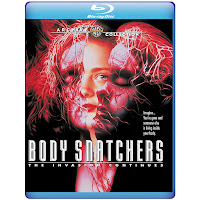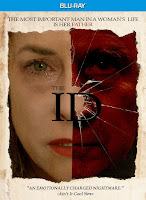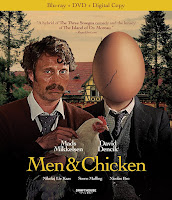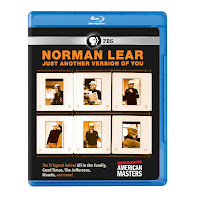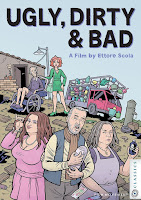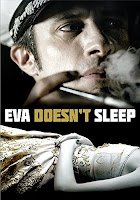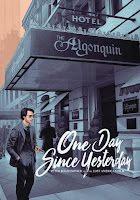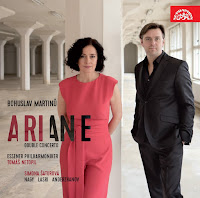the traveler's resource guide to festivals & films
a FestivalTravelNetwork.com site
part of Insider Media llc.
Reviews
November '16 Digital Week II
- Details
- Parent Category: Film and the Arts
- Category: Reviews
- Published on Tuesday, 08 November 2016 13:47
- Written by Kevin Filipski
The Durrells in Corfu—Complete 1st Season
Swiss composer Frank Martin wrote this piece for choir, percussion and massive orchestral forces during World War II for a staged drama featuring Death as a sympathetic character; since it’s visual as well as musical, this CD provides only half the work. But thanks to a vivid, persuasive performance by the superb choristers, pummeling percussionists and first-rate orchestral musicians conducted by Bastiaan Blomhert, this recording gives of a flavor of the entire work, an interesting oddity from the most sophisticated of 20th century composers.
Off-Broadway Reviews—Adam Bock’s “A Life” with David Hyde Pierce; A.R. Gurney’s “Two Class Acts”
- Details
- Parent Category: Film and the Arts
- Category: Reviews
- Published on Monday, 07 November 2016 16:15
- Written by Kevin Filipski
 |
| David Hyde Pierce in A Life (photo: Joan Marcus) |
 |
| Rodney Richardson and Dan Amboyer in Squash (photo: Joan Marcus) |
Broadway's Kelli O'Hara Sings Classics at Carnegie
- Details
- Parent Category: Film and the Arts
- Category: Reviews
- Published on Friday, 04 November 2016 13:58
- Written by Jack Angstreich

Photo by Chris Lee
A touchstone of the current season at Carnegie Hall was the opportunity to hear Broadway star Kelli O'Hara at Stern Auditorium in her terrific solo debut there, on the evening of Saturday, October 29th.
Looking glamorous in a red gown, she opened with "Ain't it a pretty night" by Carlisle Floyd from his opera Susannah, thrillingly segueing into a jazz arrangement of "I Have Dreamed" from The King and I by Richard Rodgers & Oscar Hammerstein, for the current revival of which (opposite Ken Watanabe) she won a Tony Award. (She recorded this on her first solo album, Wonder in the World.)
She further mined the Great American Songbook, the most impressive component of her repertoire, with a contemporary arrangement of "Without a Song" by the superb Vincent Youmans, which was popularized by Bing Crosby (with the Paul Whiteman Orchestra) and Frank Sinatra. After "To Build a Home" by Jason Robert Brown from The Bridges of Madison County, in which she appeared on Broadway, she delivered Leonard Bernstein's "Make Our Garden Grow" from Candide, originated by the legendary Barbara Cook whom she then brought onstage. Cook sang a ditty by Vernon Duke a cappella and O'Hara then led the audience in "Happy Birthday" for Cook, who had just turned 89 that week.
 O'Hara then performed "The Light in the Piazza" from the musical of the same name by Adam Guettel (the grandson of Rodgers) which she starred in on Broadway to acclaim, followed by "I Wish It So" by Marc Blitzstein from Juno and then the lovely "I Cannot Hear the City" by Marvin Hamlisch from his musical Sweet Smell of Success, in which show she had also starred on Broadway. The ensuing, delightful "He Loves Me" from the very underrated, recently revived, She Loves Me by Jerry Bock & Sheldon Harnick preceded a beautiful rendition of "Finishing the Hat", one of Stephen Sondheim's finest songs (from Sunday in the Park with George), expressing her debt to the composer in whose Follies she also had a role in on Broadway. She surpassed this with "This Nearly Was Mine" one of the supreme moments of the evening and one of the greatest popular songs, from Rodgers & Hammerstein's South Pacific, another one of her Broadway successes. She recorded these last three for her second solo album, Always.
O'Hara then performed "The Light in the Piazza" from the musical of the same name by Adam Guettel (the grandson of Rodgers) which she starred in on Broadway to acclaim, followed by "I Wish It So" by Marc Blitzstein from Juno and then the lovely "I Cannot Hear the City" by Marvin Hamlisch from his musical Sweet Smell of Success, in which show she had also starred on Broadway. The ensuing, delightful "He Loves Me" from the very underrated, recently revived, She Loves Me by Jerry Bock & Sheldon Harnick preceded a beautiful rendition of "Finishing the Hat", one of Stephen Sondheim's finest songs (from Sunday in the Park with George), expressing her debt to the composer in whose Follies she also had a role in on Broadway. She surpassed this with "This Nearly Was Mine" one of the supreme moments of the evening and one of the greatest popular songs, from Rodgers & Hammerstein's South Pacific, another one of her Broadway successes. She recorded these last three for her second solo album, Always.
"The Sun Went Out" by her husband Greg Naughton led to his joining her for "Dance with Me" by his band, The Sweet Remains, who all entered the stage to accompany them as a bonus. O'Hara then brought up her father-in-law and the whole group performed "That Lonesome Road" by James Taylor, a cappella.
A gorgeous mash-up of Charlie Chaplin's "Smile" and George Harrison's "Here Comes the Sun" was another high-point. Her collaboration with composer Ricky Ian Gordon was registered with "God's There" from Dream True. She followed up her own song, the charming "She Sings", with Dan Lipton & David Rossmer's “They Don’t Let You In The Opera (If You’re A Country Star)” which is also on Always.
Another fabulous surprise was bringing the exquisite Broadway star Kristin Chenoweth onto the stage for a show-stopping performance of "Oklahoma" from the eponymous musical by Rodgers & Hammerstein. "Make Someone Happy" (on Wonder in the World) by Jules Styne, with lyrics by Betty Comden & Adolph Green, from Do Re Mi, was another pinnacle and she rewarded the audience with two welcome encores, the magnificent "I Could Have Danced All Night" (on Always) from My Fair Lady by Alan Jay Lerner and Frederick Loewe and "With a Little Help from My Friends" from Sergeant Pepper's Lonely Hearts Club Band by the Beatles, assisted onstage by members of her family and friends.
November '16 Digital Week I
- Details
- Parent Category: Film and the Arts
- Category: Reviews
- Published on Wednesday, 02 November 2016 14:58
- Written by Kevin Filipski
(PBS)
Czech composer Bohuslav Martinu’s one-act opera Ariane—one of his final compositions before he died in 1959 at age 68—is a captivating dramatic work that leads up to a marvelous final aria for the heroine, sung here with absolute control and poise by Slovakian soprano Simona Saturova.
Conductor Tomas Netopil and the Essen Philharmonic, who do wonders with Ariane, sound similarly muscular with Martinu’s masterly Double Concerto for Two String Orchestras, Piano and Timpani, an overpowering work composed on the eve of World War II, and whose three movements are bursting with intensity and dramatic vividness, especially in the passages played by piano soloist Ivo Kahanek.
More Articles...
Newsletter Sign Up








